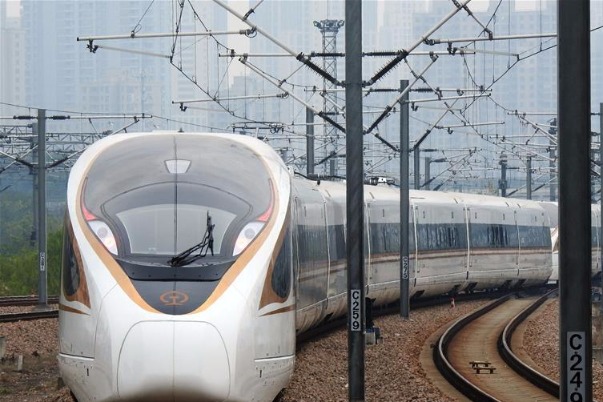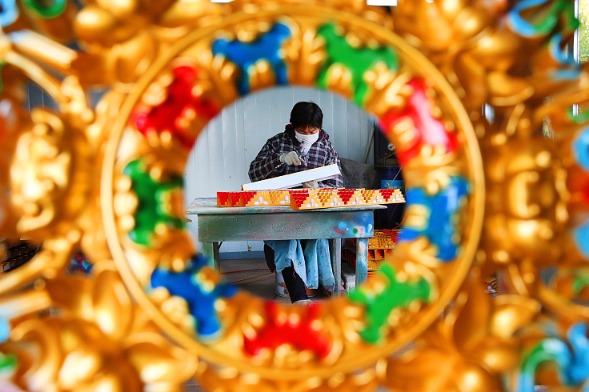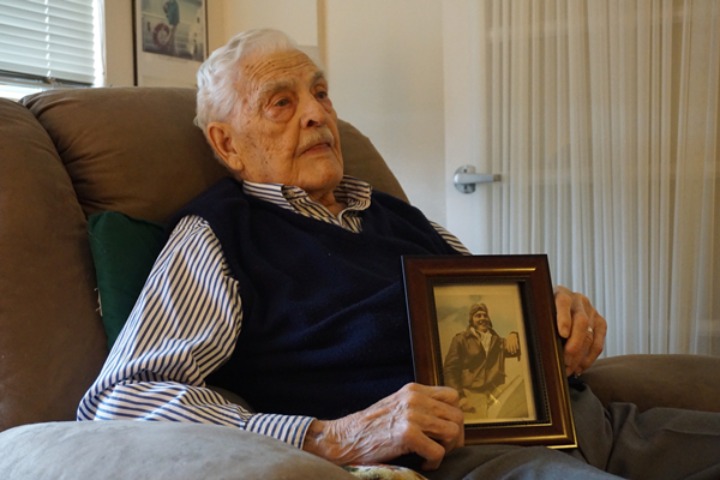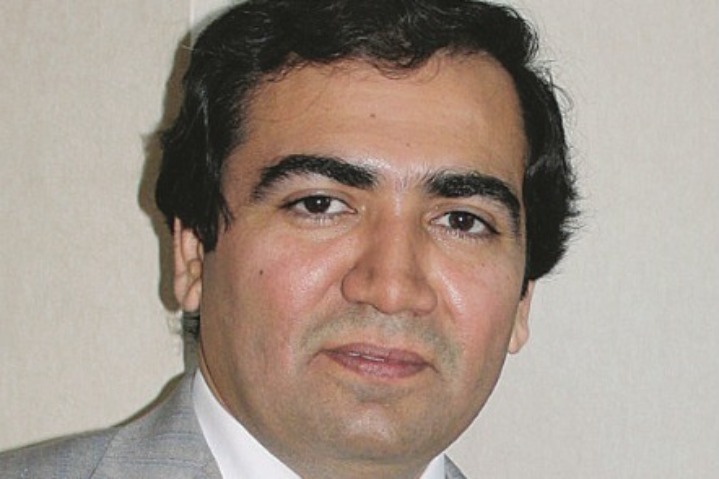Chin seeks political change in Lewiston, Maine
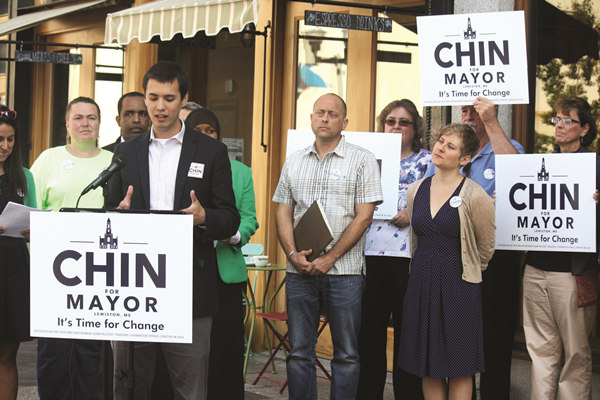 |
| Ben Chin, Democratic mayoral candidate for Lewiston, Maine, is headed to a runoff race on Dec 8. Provided to China Daily |
When China Daily interviewed Ben Chin in early November, the 30-year old had just outpolled the incumbent mayor of Lewiston, Maine, securing 44 percent of the vote in an election that had five candidates.
But because the city’s charter says that a candidate must have 50 percent or more of the votes to be declared the winner, a runoff will take place between Chin and Republican Mayor Robert Macdonald on Dec 8.
Soon after the runoff was announced, Chin, a Democrat, was back out knocking on doors and talking to potential voters in Lewiston neighborhoods.
And his wife had just given birth to their first born, a daughter.
"We’re definitely sleeping less, and too many diapers," he joked. "Still, it’s really nice to have a new little human being around."
But other than first-time parenting duties, Chin is continuing as he did before, speaking with community members about the economy, housing issues and immigration conflicts that have arisen over the years, often landing the city in the national news.
Lewiston is about 35 miles north of Portland and has a population of about 36,000, making it the second-largest city in Maine. Lewiston is a blue-collar town, one that has seen different waves of immigrants, including the English, Irish, French Canadians and most recently, Somalis and other Africans.
The city has had a hard time bouncing back after the financial crisis in 2008. The economy, which previously relied on the textiles industry, was already suffering and experiencing high unemployment.
There are service sector jobs at hospitals and universities, but the economy is different from the one that Maine is generally known for, which is the seafood industry and exporting paper and pulp-related goods.
The housing market was hit particularly hard, too. Foreclosures were widespread, and many condemned buildings remain vacant.
"We’ve actually had some out-of-state financial institutions come in and do the same sort of predatory lending processes that led to foreclosures in other places," Chin said. "It’s very low interest-rate mortgages or ‘exploding’ mortgages, where your payments are very small in the beginning, and then suddenly the fine print in the contract means they balloon and blow up, and you’re paying huge amounts of money, and you can no longer afford to take care of your place," he said.
Housing is of particular interest to Chin because it’s how he got his start in politics, through community organizing over housing issues. He went to Bates College in Lewiston, studying political science and was originally planning to go to seminary school after he graduated in 2007, but at the time, a city administrator had proposed to demolish one in four units of affordable housing in downtown Lewiston and have a major road crisscross the city.
"That was my first experience going to a public meeting and seeing a guy in a suit get up and telling people, ‘There’s nothing you can do, you’re going to lose your homes, it’s a done deal,’ " Chin recalled.
"That group of people ended up getting organized and getting sponsored by Maine’s People Alliance and formed an organization called the Visible Community, and a year later, we had won everything," he said.
"We had blocked the road, come up with a new sort of people’s downtown master plan," Chin said. "That just flipped me from feeling like I had a calling as a pastor to feeling like I had a calling to contribute to my community in another way."
Growing up, Chin split time between Pittsburgh, Pennsylvania, and Syracuse, New York, after his parents’ divorce, but it was really Lewiston where he first felt at home. The city is a place he’s proud of and invested in, even if there’s a long way to go on the economy and community relations.
Lewiston’s community relations and tensions have at times brought the city national attention. Though it has a long history of immigrants, the latest wave from Africa has stoked a reaction in predominantly white, working-class parts of the city.
Around the year 2000, African immigrants began arriving in Lewiston, and in 2003, Larry Raymond, then mayor of the city, said that the Somali population was growing too fast. Three years ago, Macdonald set off protests by saying that they had to leave their "culture at the door" and should assimilate to American culture.
"He said a bunch of other really awful, inflammatory things about immigrant folks," Chin said. "Our governor just got re-elected basically running on an anti-immigrant platform as his main thing, which is something not a lot of people would guess — a Maine governor, one of the whitest states in America, would be talking about immigration as one of his big things, but that’s what he did," Chin said.
He said that one reason why he wants to be mayor is to help Lewiston turn a new page, because a vocal minority was harming the city’s reputation and misrepresenting the rest of the population.
"I think the rest of us are just trying to figure out how to put a different foot forward," Chin said.
Chin said he wants to open a center in downtown Lewiston that will help immigrant residents learn English, become citizens and get acclimated to American culture. Lewiston has a strong tradition of integration, he said, and he wants to help the city reclaim that.
Immigration is also personal for Chin, who is half Chinese and half Caucasian.
"I’m third-generation, half Chinese, and this would be an issue for me just in terms of who I am and being proud of my heritage, and being proud of the heritage of my neighbors," he said.
Chin’s personal history has been attacked, drawing racially charged responses from those who didn’t support him during his mayoral run.
In October, there were signs posted around the city from a real estate manager that said, "Don’t vote for Ho Chi Chin. Vote for more jobs, not more welfare."
The red sign had pictures of a communist hammer as well as a caricature of an Asian man alongside the text.
The real estate manager said that the signs were posted as a way to "fight back" against being designated as a bad landlord by the Maine People’s Alliance, where Chin is a political director.
But Chin was not discouraged by the signs, and in fact felt the opposite: "Those signs were just incredibly motivating to me, because as hard as it is to see your race and ethnicity attacked, it’s way harder to live in one of these apartments that one of these slumlords own. I think those signs in many ways revealed the true character of the opposition that we’re dealing with, and it’s good for a light to be shown."
He went on: "The only way that progress really happens is when things are brought up in public. I run this campaign to have a public fight about real issues, and we clearly had gotten under the skin of those guys, and they put their cards on the table, and now everyone can see what’s going on, and I’m confident that when everything is laid out there, people will see our vision, people will see their vision, and they’re going to choose ours if it’s all laid out there."
Chin’s Chinese lineage stems from his paternal side, when his grandfather came to the United States from South China during the Great Depression. He served during World War II before graduating from college and starting his own business in New York City.
Chin’s grandmother fled Hong Kong as the Japanese were pushing into the region, and went on to study at the Massachusetts Institute of Technology. She graduated from MIT in 1946 at the age of 19.
"When you look at her class picture, there are not a lot of people who look like her, either from a gender or ethnic background. So being a 19-year-old, young Chinese woman, graduating from an elite university in America is a pretty big accomplishment," he said.
"They raised my dad, and dad raised me to definitely embody those values of working hard and really trying your best, but then also realizing that it takes other people investing in you and taking risks on you to be able to make it. Nobody really makes it alone — we make it when we pull together.
amyhe@chinadailyusa.com










